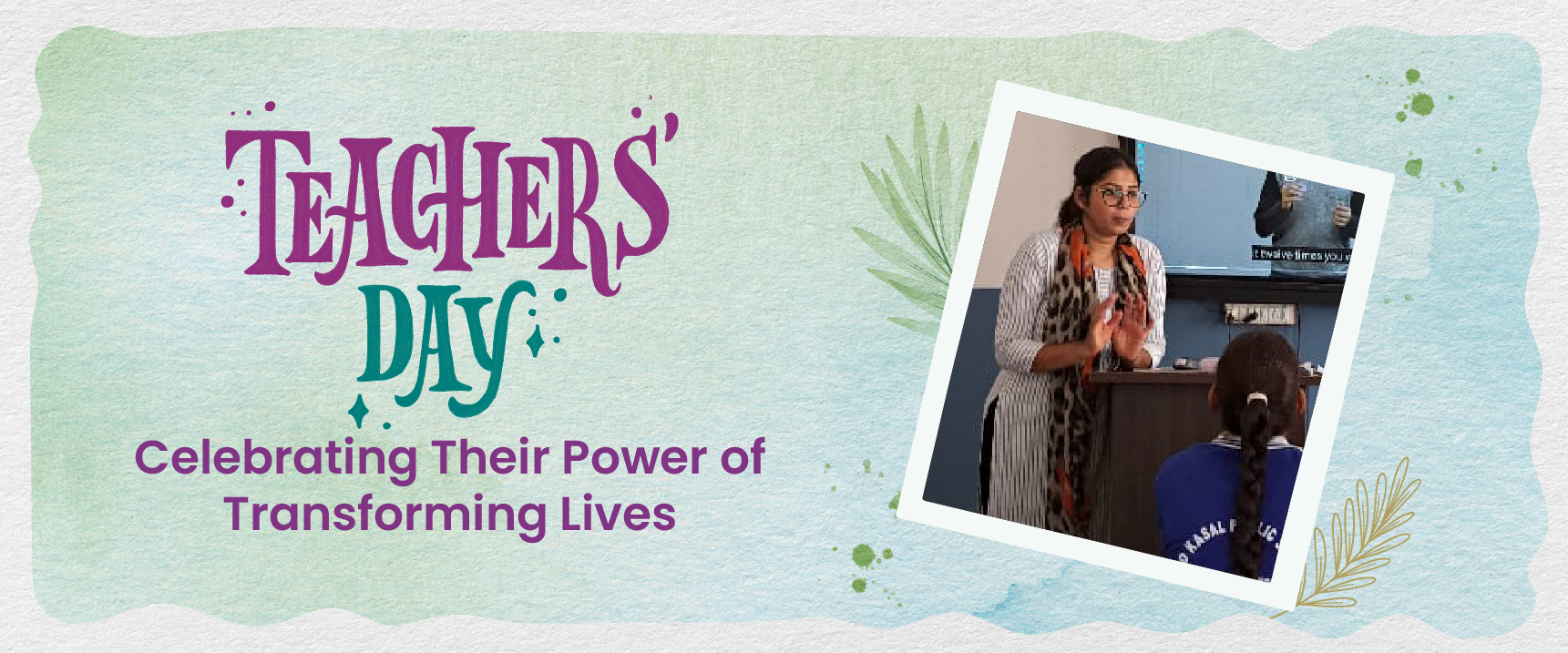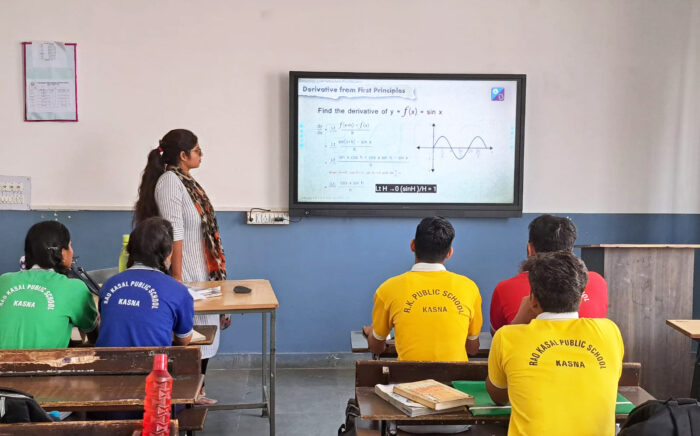
“Children are smarter today and are aware of technological advancements much more than us,” says Ruchi Yadav, a maths teacher, as she affirms the need for upgrading skills with the changing times. As a young progressive teacher, she shares with BYJU’S Team Storyweavers what she considers her learning, achievements and challenges as an experimental maths teacher for high school students.
There are always two-fold achievements for me: the first is with slow learners, and the second is with the intelligent ones. They are the toughest to manage in the classroom, and I love that challenge. My most proud moments are when my student proves me wrong. I’ve always been the kind of student in school who argued with teachers and asked them a thousand why-and-how questions. When these two students ask me tons of questions and prove me wrong with logic and reasoning, in a positive way, I feel super proud as a teacher. Honestly, this pushes me to learn a lot more.
When I see my slow-learning students improve gradually over time, it makes me proud to think that I’ve been able to teach them something.
Children are smarter than us today. Moreover, they focus far more on online learning. It is essential that we upgrade our skills with the students. More often than not, we have to learn a lot of things in order to keep ourselves updated. To be able to answer my students’ questions, I need to learn new things daily. This learning process continues for me and must continue–this happens to be my biggest learning.
I try to understand their psychology first–what’s troubling them and how to get rid of it. Slow learners are usually introverted and shy to share. There is such a student in my class. Of course, I didn’t spot or ask him anything in the classroom, but I called him later and asked him. He opened up gradually and expressed his apprehension about asking questions in class because some teachers seemed to ignore him and his questions in the past. I encouraged him to ask questions in my class. Now I see a sense of responsibility in him in opening up and responding in the classroom. In my maths class, I see him transforming his own behaviour.

I usually use demonstrations as my tool. However, some concepts are difficult to explain through demonstrations. Concepts such as inverse trigonometry are easier to understand when they are shown graphically. A couple of days back I was teaching linear programming that’s a part of operational research. It is quite a challenge to do a practical demonstration, especially for classes 11 and 12. The video graphical representations then come in very handy in showing them the optimal reasoning and making them feasible. Visualising the concepts really helps the students grasp concepts.
“Every child is unique in their own way and learns differently. In the present times, we tend to prioritise marks over the IQ of a child. So, as teachers, we have to balance delicately between these two,” says Ruchi as we conclude our conversation, raising a very pertinent question, “Do we nudge them towards marks or knowledge?”
Ms. Ruchi Yadav is a mathematics teacher and is a proud member of BYJU’S 1500+ strong school teacher community–The Teacher’s Staffroom. She teaches at Rao Kasal Public School and her school is a BYJU’S for Schools powered school.